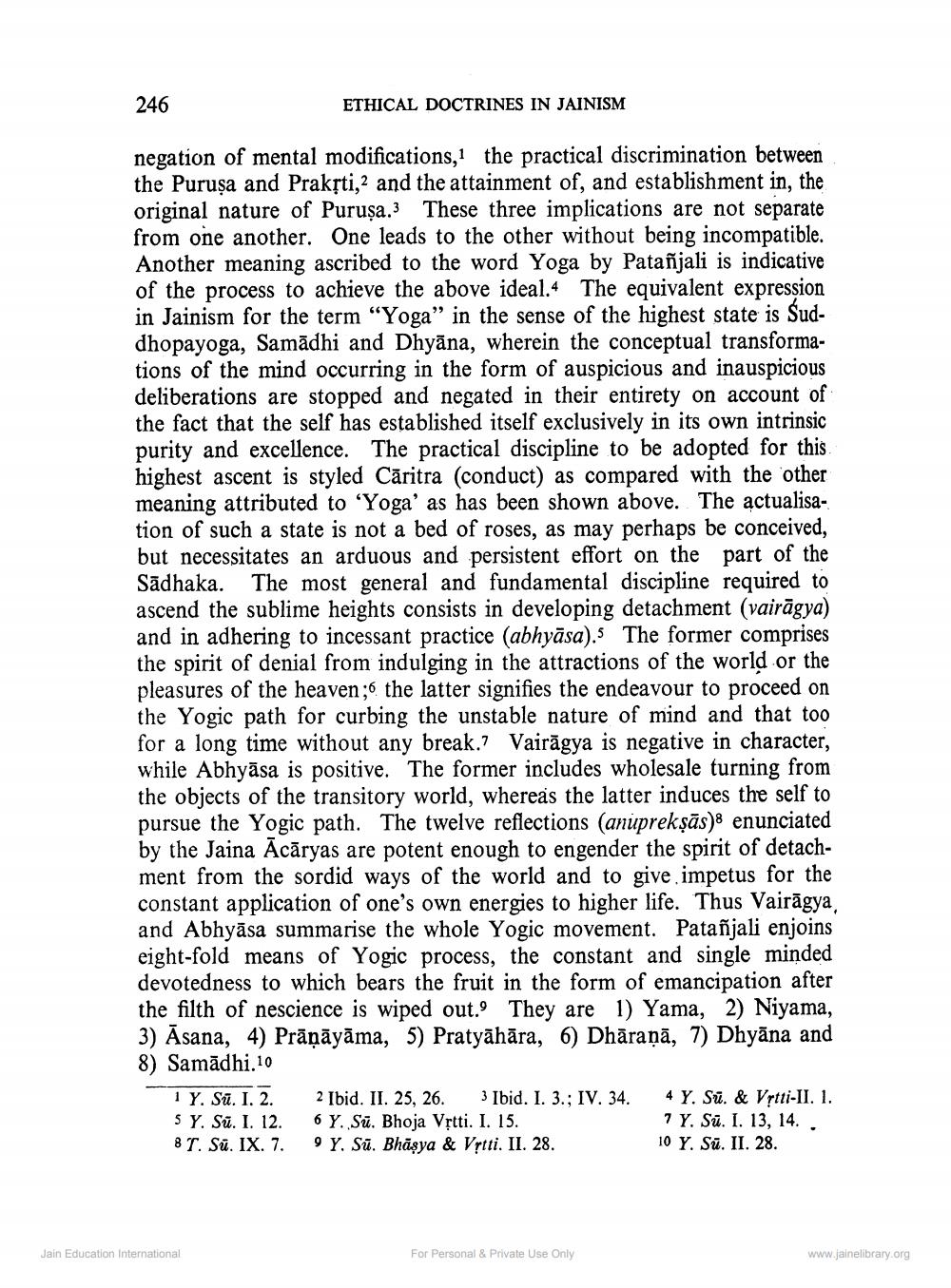________________
246
ETHICAL DOCTRINES IN JAINISM
negation of mental modifications, the practical discrimination between the Puruşa and Praksti,2 and the attainment of, and establishment in, the original nature of Puruşa 3 These three implications are not separate from one another. One leads to the other without being incompatible. Another meaning ascribed to the word Yoga by Patañjali is indicative of the process to achieve the above ideal.4 The equivalent expression in Jainism for the term "Yoga" in the sense of the highest state is Suddhopayoga, Samādhi and Dhyāna, wherein the conceptual transformations of the mind occurring in the form of auspicious and inauspicious deliberations are stopped and negated in their entirety on account of the fact that the self has established itself exclusively in its own intrinsic purity and excellence. The practical discipline to be adopted for this highest ascent is styled Căritra (conduct) as compared with the other meaning attributed to 'Yoga' as has been shown above. The actualisation of such a state is not a bed of roses, as may perhaps be conceived, but necessitates an arduous and persistent effort on the part of the Sādhaka. The most general and fundamental discipline required to ascend the sublime heights consists in developing detachment (vairāgya) and in adhering to incessant practice (abhyāsa). The former comprises the spirit of denial from indulging in the attractions of the world or the pleasures of the heaven;6 the latter signifies the endeavour to proceed on the Yogic path for curbing the unstable nature of mind and that too for a long time without any break. Vairāgya is negative in character, while Abhyāsa is positive. The former includes wholesale turning from the objects of the transitory world, whereas the latter induces the self to pursue the Yogic path. The twelve reflections (anuprekşās): enunciated by the Jaina Acāryas are potent enough to engender the spirit of detachment from the sordid ways of the world and to give impetus for the constant application of one's own energies to higher life. Thus Vairāgya, and Abhyāsa summarise the whole Yogic movement. Patañjali enjoins eight-fold means of Yogic process, the constant and single minded devotedness to which bears the fruit in the form of emancipation after the filth of nescience is wiped out. They are 1) Yama, 2) Niyama, 3) Āsana, 4) Prāņāyāma, 5) Pratyāhāra, 6) Dhāraṇā, 7) Dhyāna and 8) Samādhi.10
1 Y. Sū. I. 2. 2 Ibid. II. 25, 26. 3 Ibid. I. 3.; IV. 34. 4 Y. Sū. & Vrtti-II. 1. 5 Y. Sú. I. 12. 6 Y. Sü. Bhoja Vrtti. I. 15.
7 Y. Su. I. 13, 14. 8T. Sū. IX. 7. 9 Y. Sū. Bhāsya & Vrtti. II. 28.
10 Y. Sū. II. 28.
Jain Education International
For Personal & Private Use Only
www.jainelibrary.org




